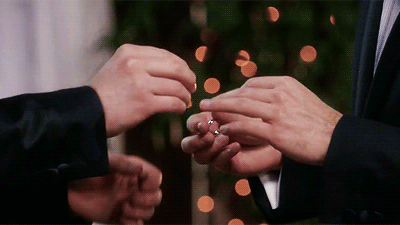- Posting Speed
- 1-3 posts per week
- One post per week
- Slow As Molasses
- Online Availability
- Anytime, I have no life.
- Writing Levels
- Adept
- Advanced
- Douche
- Adaptable
- Preferred Character Gender
- Male
- Nonbinary
- Transgender
- Primarily Prefer Male
- Genres
- Fantasy, romance, slice of life, anti-hero stories, "you're our only hope", fandom non-canons, soft scifi, transhumanism, magical girls, horror, suspense / mystery, detective noir, fractured fairytales

Pahn's 101 guide on romance in roleplays

Greetings fellow romantics!
If you are viewing this lesson on Romance, it means you are probably interested in what I have to say about it and want to challenge me to a romance duel, or that you actually want to learn how to make your romance believable and 10/10 would romance again! Most roleplayers create romanceable characters and will choose to act it out or not – and today I want to show you how all of this works. If you think your romance is already 10/10, good for you! Share your tips with others on here so that everyone can become a true romance writer.
This will be a four-part lesson, and I will be referring other guides and lessons which offer different opinions on the matter on topic. Please remember this is mostly based on my opinion and on those of other members with whom I've talked about this. Don't hesitate to comment and ask questions once you've read through!
Part I: Romance 101 (this guide!)
Part II: Creating Romanceable Characters (upcoming)
Part III: Roleplaying Romance (upcoming)
Part IV: Exploring Romance (upcoming)
1 – What is romance?
Romance is intimately tied with sexual and emotional attraction to another person. It is more a feeling than a setting – though romantic settings do exist they are not romance in itself. You can't talk about romance without talking about love and lust. Both are important elements of romance, and both can exist without the other.
Love is an emotional attraction, and it can take many forms: friendship, family, significant other. The type of love typically involved in romance is towards a significant other. It is not a fixed feeling: au contraire, love is fluid and shapes with who we are, and those that surround us. It's definitely more complex than this brief description, but that's a subject for another time!
Lust is a sexual attraction. Another word for it would be desire. While both love and lust are actually a chemical reaction, lust is basically your body telling you "I want to make this person feel good, I want this person to make me feel good" usually through sexual acts. You can lust after someone without having an emotional attraction to them, or you can only lust after someone once you have an established emotional attraction. It's all a bit complicated, so it's important to determine early on what kind of "lover" your character is.
Okay but what about Romance as a genre?
Romance is a feeling associated with love and intimacy. What makes it different is that it contains elements of mystery and excitement. Can you remember the latest movie or show you watched, and it left on a cliff-hanger that made you want to kick your TV? You just need to know if both characters have reciprocating feelings! This may lead to a lot of people believing romance is a genre that can survive by itself. But once the climax is reached, when the two characters have finally admitted their feelings / are dating… What is left? This is why romance is always bundled up with one or two more genres so it can sustain the interest of the readings or viewers!
2 – Key Points For Writing Romance
Here are ten things to consider when writing romance with your partner!
#1 – Pacing. Do your characters know each other? Are they strangers? Unless special circumstances, pacing and building a semblance of a relationship between the two characters is crucial! They will not take a look at each other and fall in love, but one of them might begin a romantic pursuit or even just a sexual pursuit.
#2 – Awkwaaaard. Your characters are not perfect! They will feel awkward about admitting their feelings, about their first kiss, about their exes popping out of the blue. Even if they are experienced, there is a phase of awkwardness and shyness that is pretty fucking adorable, and the other characters would find this usually quite endearing.
#3 – Misunderstanding. Make things exciting! Do the characters read each other's mind? No? Well then, they might get upset about things. This is pretty normal and should be part of building a relationship between them as it forces interactions and character developments through conflict. Yum yum yum!
#4 – Failures. Just like real life, romance in stories is not (should not!) be always successful. It is still good to play it out, whether it be in a group RP setting or between two players. It gives you the chance to explore your character and see how they can improve through the story, so that the next romantic opportunity might be successful.
#5 – Misbehaving. Once again, just like in real life, people will do terrible and horrible things to either get noticed by their love interest, or to get over their previous one. Jealousy, possessiveness, obsession, aggressiveness… Those are character traits that are NOT as uncommon as we think!

#6 – Faithfulness. Avoid changing your character like a maniac just so that they can interact with a romantic interest. It is possible for people to become someone else to please a potential lover, but doing it with the very base concept of who your character is, is never a good idea.
#7 – Sustenance. Romance should not be the core and skeleton of your roleplay. There needs to be some kind of outer conflict, unless your wish is to do something like a slice of life story, where the conflict consists of the characters learning to love each other. Still – your characters should definitely have more than love to motivate them!
#8 – Consent. Player consent is suuuper important. Talk about it with your partner, plot with them. Surprises are fun and all, but if you're in a group setting and you decide by yourself to romance another character, that doesn't mean they will reciprocate! Always ask the other player if they are also interested.
#9 – Lust. Romance is not lust, and lust is not romance. Attraction and love at first sight is usually a sign of lust, not love! The characters can be lusting after each other for sure, though they are still two different themes and feelings!
#10 – Horniness. Unless you are making something like a nymphomaniac or succubus, your character will not be horny 24/7, that is just not how the human body works. Lust can make your romantic character go bonkers and really, really want to do sexy things with their partner, but we can agree that in the middle of a tornado would not be a good time.
3 – Common Sub-Genres of Romance
There are obviously many different ways romance is presented, and I have categorized the most common and currently popular sub-genres. Those will be often present in TV shows, movies, books… They have a lot of reference material that can help you grasp it better, and incorporate it in your own stories!
Chivalric Romance
Also known as heroic romance, this is probably one of the most common type of romance sub-genres in fantasy settings. It includes but is not limited to rescuing a damsel in distress trope, having a quest-driven character(s) with an emphasis on courtly manners and courteous love. You can think of anything involving royal courts, medieval settings, and Arthurian stories. The focus is much more on the mannerisms and the overly polite flirting (or courting) between characters.
Courtly love can be described as a "proper" way of declaring your love to someone who is unavailable, more commonly seen between a knight and a married noblewoman (or even someone of a higher stature). The focus is not on their physical interactions, but more on the sweet words they share, and those knights were held to a certain standard of chilvaric behaviour. It's pretty much your medieval version of unrequited and polite love, and it was socially acceptable so long as the concerned parties did not act out on their feelings.
Erotic Romance
This is a rising sub-genre of romance that many of us are familiar with: smut! It is not plain erotica/porn, however – there is a heavy focus on love scenes involving well-developed characters, and the plot could exist without the sex. What differentiates it from plain romance is that the main focus is on the sexy times, the sexual tension between the characters which is supported by their feelings of mutual love and attraction.
The culminating point of erotic romance is once the characters have been intimate, they are able to admit their feelings to each other, and their way of expressing their love is likely to be very physical. winky-face

Historical Romance
Shout out to all history nerds! Historical romance is the portrayal of historically accurate social conduct and manners of the time in which the story is set. Most of those are set in the past (obviously), and you will find popular settings are WWI and WWII, with a love affair between a soldier and a nurse, or a prisoner-of-war and their keeper, etc. Most stories will of course be fiction, but they would takes important cues from the period in which they are set. The points of tension are also more likely to be different from our modern ones, especially when it comes to sex, intimacy, and making a relationship "official".
Inspirational Romance
This is perhaps the most common sub-genre of romance when we want to keep things sex-free. The characters' feelings are of the utmost importance, with themes like forgiveness, honesty, and fidelity. Many would agree this kind of romance is closely connected with religious views of chaste relationships. The intimacy is first on an emotional level, and later on a physical one when the characters would be married (or united through some kind of ceremony).
This is not to say that sexual tension doesn't exist in the early stages, but it is not acted on, and the points of tension for this sub-genre would be the official union of the characters – where they swear to be loyal and loving to each other for the rest of their lives.

Paranormal Romance
Ever since the late 90's, paranormal romance has been one of the most popular Young Adult go-to sub-genres. Science goes out the window, and in creeps in the vampire, the werewolf, the ghost, to seduce the other character. With series like Twilight, City of Bones, Dark Fever, True Blood… It is hard to believe YA authors write anything else these days!
The main tension point would be when the two characters accept each other for who they are, or manage to become somewhat similar to their love interest. At first, their love might be very controversial, forbidden even, but as they struggle through the labours of love, things get better and the characters love each other all the more for it.
Romantic Suspense
Super popular with mystery and thriller stories, romantic suspense will involve an intrigue/mystery for the characters to solve, where one of them is typically the victim of a crime, and the other character is a figure of the law (police officer, lawyer, detective, etc). It can also revolve around two partners who investigate crimes, or are victims of a similar or common mysterious event, and they bond over the excitement of pursuing the offender(s). Think of all the cop shows with a female and male lead, the romantic character arcs in murder novels, etc. Who doesn't get all giddy when surrounded by crime and mayhem!
4 – Romance Pet-Peeves
Everyone has pet-peeves about romance, but here are the most common ones.
☠No, your character is not irresistible. Unless you decide to make it some kind of supernatural strength for your character, not every character will be falling head over heels for them.
☠Don't whore your character to every other characters; that is just sad and kinda annoying, especially in group roleplays.
☠Love at first sight is not love, it's attraction and lust. Two characters don't just see each other and instantly know they are meant to be together. That's not how love works, guys!
☠Romantic relationships take time and hard work. If you think wooing someone seriously is easy, you might be skipping a few steps…

☠Your character's love life is not the centre of the universe. It's simply unfeasible in group roleplays, and for one on ones, remember the world moves on and doesn't stop to accommodate your character's feelings.
☠Confidence and trust between characters are things that are nurtured, they also take time and effort.
☠Once the characters are in a serious relationship, have a family, etc – being shy/sheepish/bashful gets old real fast and you just have to stop doing that.
☠If you want romance in your group RP, don't be passive. Waiting for another character to make the first move all the time brings no one to the fun parts.
☠Small talk is okay when the characters are getting acquainted, but dear god surely they aren't awkward forever and can actually have serious and deep conversations. Those are important!
☠Don't pull an Edward Cullen. Following a character, messing with their stuff, buying them expensive stuff when they just met, watching them sleep… Jeez, don't be a creepy stalker! Unless this is what you're actually aiming for that the other player is aware and actually wants this to be happening.

This concludes Pahn's 101 guide on romance in roleplays for now! Thank you for reading and I hope I brought some enlightenment to your romancing! Make sure to keep an eye out for the upcoming parts 2-3-4 in the near future ™.
Special thanks to everyone who helped me build this guide, I could not have done it without your ideas and input! Cheers.
Last edited:





